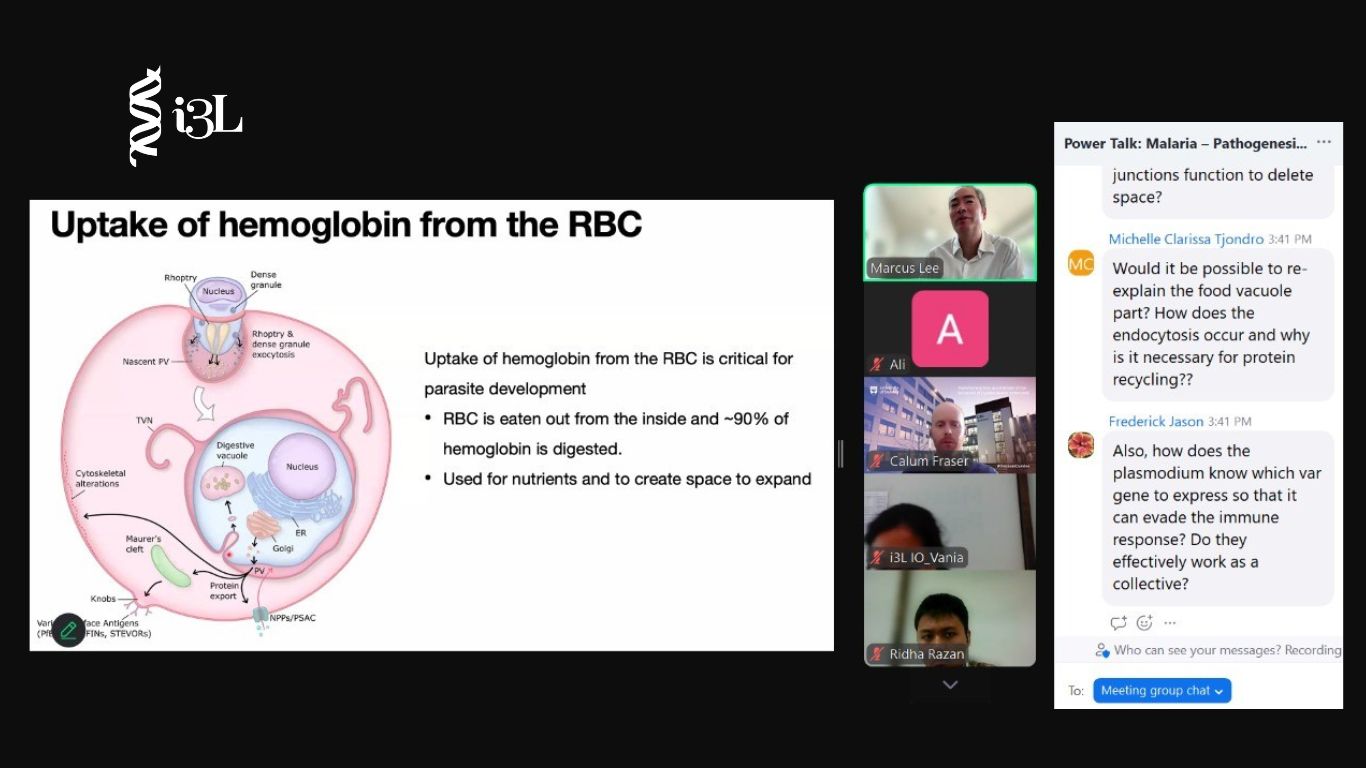Undergraduate Programs:
School of Health and Life Sciences
School of Business and Management
Postgraduate Program:
Professional Program:
Pharmacist Professional (Apoteker)
University of Dundee Powertalk: Malaria – Pathogenesis and Therapeutic

Wednesday, May 21, 2025 — i3L hosted an online powertalk with Prof. Marcus Lee – Chair of parasite molecular genetics at school of life sciences University of Dundee as the speaker. The power talk explores the topic of “Malaria – Pathogenesis and Therapeutics”, which includes the life cycle of malaria parasites and the mechanism behind its resistance towards drugs.
During the powertalk Prof. Lee explained how malaria can infect humans through mosquitoes as the carrier. When mosquito’s proboscis pierce through the skin the parasite (plasmodium) in a form of sporozoites delve into the bloodstream making its way to the liver, where they will be in dormant state or develop further into schizonts, the plasmodium will develop further into merozoites signify by the released of plasmodium from the liver into the bloodstream, where they will infect red blood cells. In the red blood cells plasmodium would reproduce into two different branches asexually and sexually. The asexual branch stays in the host body however if it reproduces sexually it will create gametocytes which can infect other mosquitoes when it bites the host.
After explaining the life cycle of plasmodium Prof. Lee explained the medications used to treat malaria and how plasmodium evolves to resist the drugs. One of the common drugs used to treat malaria is chloroquine, which inhibits polymerization of hematin that interferes with hemoglobin consumption, preventing growth and poisoning plasmodium. P. falciparum resist that through a mutation on PfCRT it is thought that this mutation allowed P. falciparum to transport chloroquine out thereby allowing polymerization of hematin in presence of chloroquine. Another drug used to treat malaria is artemisinin, which causes plasmodium death through damaging protein and inhibiting proteasome functionality. The partial resistance of P. falciparum is caused by mutations in the pfk13 gene. This mutation slows digestion of hemoglobin leading to reduced efficacy of artemisinin.
The events concluded with a question and answer session, with many questions coming from the attendees. After the Q&A, the powertalk ended with a group photo. The powertalk was insightful and gave valuable knowledge for a deeper understanding of malaria.

Undergraduate Programs:
School of Health and Life Sciences
School of Business and Management
Postgraduate Program:
Professional Program:
Pharmacist Professional (Apoteker)
Undergraduate Programs:
School of Life Sciences
School of Business
Postgraduate Program:
Professional Program: